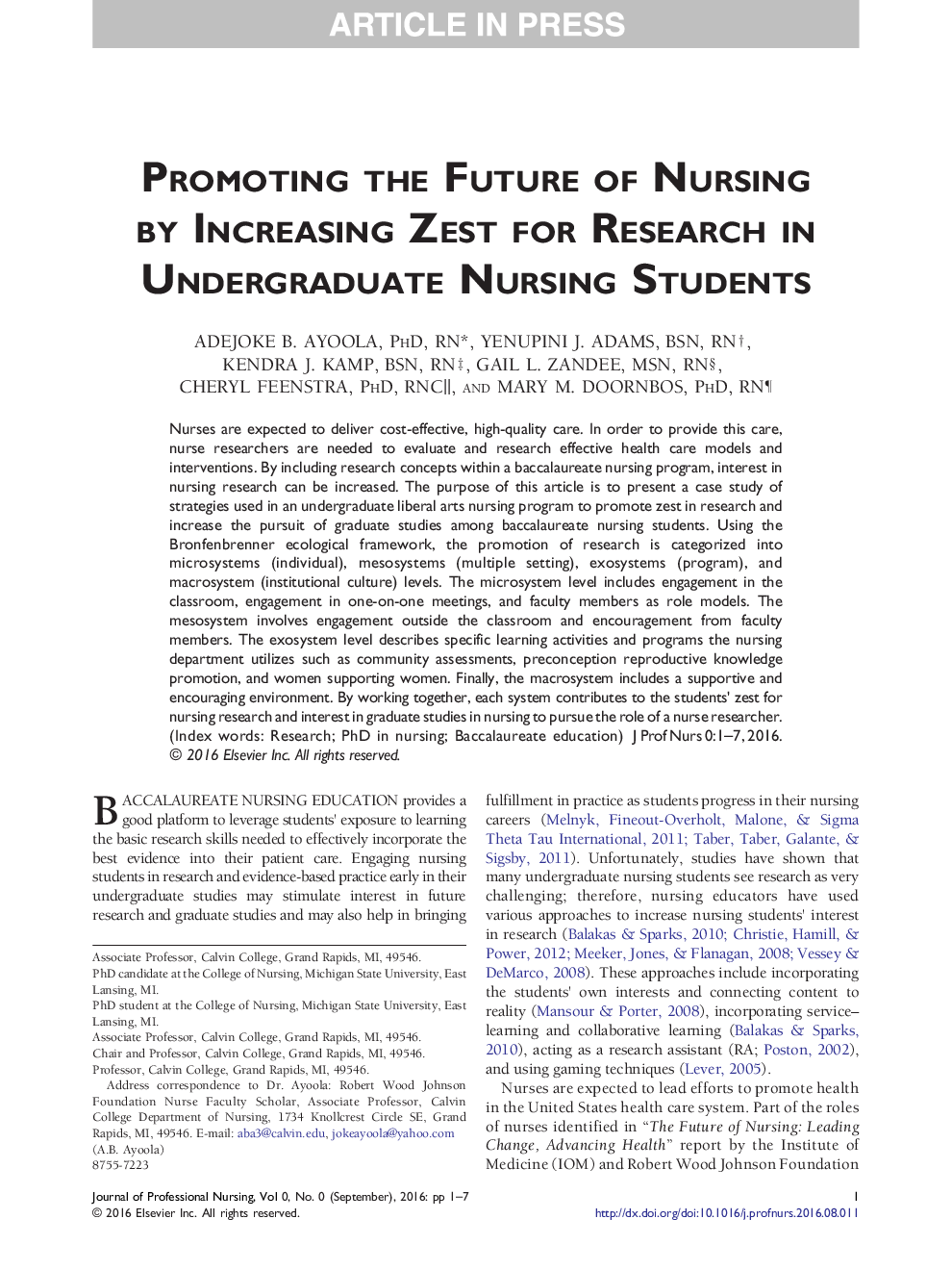| Article ID | Journal | Published Year | Pages | File Type |
|---|---|---|---|---|
| 5570561 | Journal of Professional Nursing | 2017 | 7 Pages |
Abstract
Nurses are expected to deliver cost-effective, high-quality care. In order to provide this care, nurse researchers are needed to evaluate and research effective health care models and interventions. By including research concepts within a baccalaureate nursing program, interest in nursing research can be increased. The purpose of this article is to present a case study of strategies used in an undergraduate liberal arts nursing program to promote zest in research and increase the pursuit of graduate studies among baccalaureate nursing students. Using the Bronfenbrenner ecological framework, the promotion of research is categorized into microsystems (individual), mesosystems (multiple setting), exosystems (program), and macrosystem (institutional culture) levels. The microsystem level includes engagement in the classroom, engagement in one-on-one meetings, and faculty members as role models. The mesosystem involves engagement outside the classroom and encouragement from faculty members. The exosystem level describes specific learning activities and programs the nursing department utilizes such as community assessments, preconception reproductive knowledge promotion, and women supporting women. Finally, the macrosystem includes a supportive and encouraging environment. By working together, each system contributes to the students' zest for nursing research and interest in graduate studies in nursing to pursue the role of a nurse researcher.
Keywords
Related Topics
Health Sciences
Nursing and Health Professions
Nursing
Authors
Adejoke B. PhD, RN, Yenupini J. BSN, RN, Kendra J. BSN, RN, Gail L. MSN, RN, Cheryl PhD, RNC, Mary M. PhD, RN,
